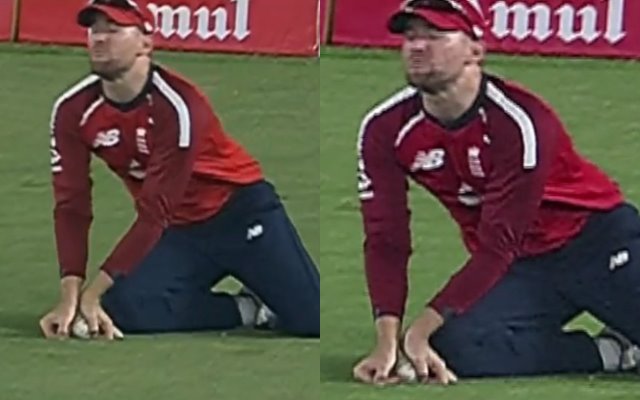Why is the cricketing fraternity uniting against the soft signal?

Soft Signal. This cricketing term has been in discussion in the cricketing fraternity the most times than ever over the last fortnight or so. It all started with Suryakumar Yadav’s promising knock in his debut innings for India getting cut off via a controversial catch from Dawid Malan. The fielder had claimed the catch after which the onfield umpire took the matter to the third umpire giving the soft signal as out.
However, after looking at the catch through several different angles, the third umpire couldn’t come to a conclusion. He claimed that he doesn’t have enough evidence to overturn the soft signal and hence, the umpire’s decision stayed and Surya had to walk back. If the rules are considered, the officials went by it, and eventually, the decision was made. But was it correct? What if there was no soft signal itself? Would the third umpire have given it out in that case?
A similar situation arose in the same T20I when Washington Sundar was caught at third man by Adil Rashid. And when the on-field umpires took the matter upstairs, it was touch and go in terms of Rashid’s leg touching the boundary cushions. Again, the third umpire wasn’t clear and he had to go with the soft signal which was, as expected, out.

Virat Kohli was vocal in expressing his disappointment over these decisions asking why there can’t be any ‘I don’t know’ calls from the on-field umpire and had spoken about having clarity on the field. “I don’t know why there can’t be an ‘I don’t know’ call with the umpires as well. It is similar to the umpire’s call as well. These are decisions that can change the course of the game, especially in these big games.
“We were on the receiving side today, and tomorrow it could be some other team. You want these ironed out and keep the game really simple and linear. It isn’t ideal in high-pressure games and we want a lot of clarity on the field,” he had said.
Aakash Chopra and Irfan Pathan discuss the Soft Signal issue
The topic was back in discussion during the second ODI between India and England when Ben Stokes was controversially given not-out by the third umpire over a run-out call. Aakash Chopra and Irfan Pathan were on air doing Hindi commentary and the former started the discussion regarding the soft signal.
He reinstated that the introduction of the soft signal was introduced to help the third umpire when he is unsure whether to give out or not-out despite using the technology. When Chopra asked Irfan’s opinion on the same, the former India all-rounder reckoned that the soft signal shouldn’t be there itself with all the technology available to the TV umpire in modern-day cricket.
Soft Signal for catches taken in the deep is farcical. MUST be avoided. Adding to the confusion. Not solving a problem. #IndvEng
— Aakash Chopra (@cricketaakash) March 18, 2021
Irfan Pathan felt that there shouldn’t be any middling decision, the umpire should give it out or not-out. It is similar to Umpire’s Call in DRS which is another debated topic in the fraternity. According to Irfan, there shouldn’t be any grey areas in decision making.
He recalled how the game has evolved over the years and why at first third umpire was introduced and that was for clarity. He also pointed out that how umpires Mark Benson and Steve Bucknor had asked Ricky Ponting and other Australian fielders to confirm if the catch was clean before taking a final decision during the Sydney Test in January 2008.
Giving Soft signal despite having technology is like Having Thakur but Sholay wala… #softsignal
— Irfan Pathan (@IrfanPathan) March 19, 2021
In the meantime, after so much discussion over the soft signal issue, the BCCI has decided to do away with the soft signal in the upcoming 14th edition of the Indian Premier League (IPL). Will this move give more clarity in decision-making for the third umpire? Only time will tell.
But doing away with the soft signal will definitely give more power to the third umpire and with that, he will be under more pressure too. But the bigger question is different. The fielding team will more often claim the catch whether they are sure or not. In that case, the third umpire should be courageous enough to overturn it and will he be able to do it if the situation is once again 50-50? Well, again, only time will tell.
